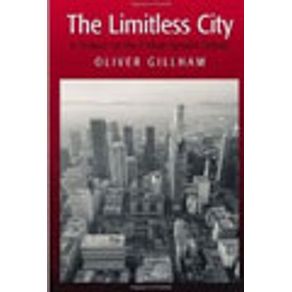One of the great debates of our time concerns the predominant form of land use in America today -- the all too familiar pattern of commercial and residential development known as sprawl. But what do we really know about sprawl? Do we know what it is? Where did it come from? Is it really so bad? If so, what are the alternatives? Can anything be done to make it better? "The Limitless City" offers an accessible examination of those and related questions. Oliver Gillham, an architect and planner with more than twenty-five years of experience in the field, considers the history and development of sprawl and examines current debates about the issue. The book: offers a comprehensive definition of sprawl in America traces the roots of sprawl and considers the factors that led to its preeminence as an urban and suburban form reviews both its negative impacts (loss of open space, increased pollution, gridlock) as well as its positive aspects (economic development, personal freedom, privacy) considers responses to sprawl including "smart growth," urban growth boundaries, regional planning, and the New Urbanism looks at what can be done to improve and counterbalance sprawl The author argues that whether we like it or not, sprawl is here to stay, and only by understanding where it came from and why it developed will we be able to successfully address the problems it has created and is likely to create in the future. "The Limitless City" is the first book to provide a realistic look at sprawl, with a frank recognition of its status as the predominant urban form in America, now and into the near future. Rather than railing against it, Gillham charts its probable future course while describing criticalefforts that can be undertaken to improve the future of sprawl and our existing urban core areas.


